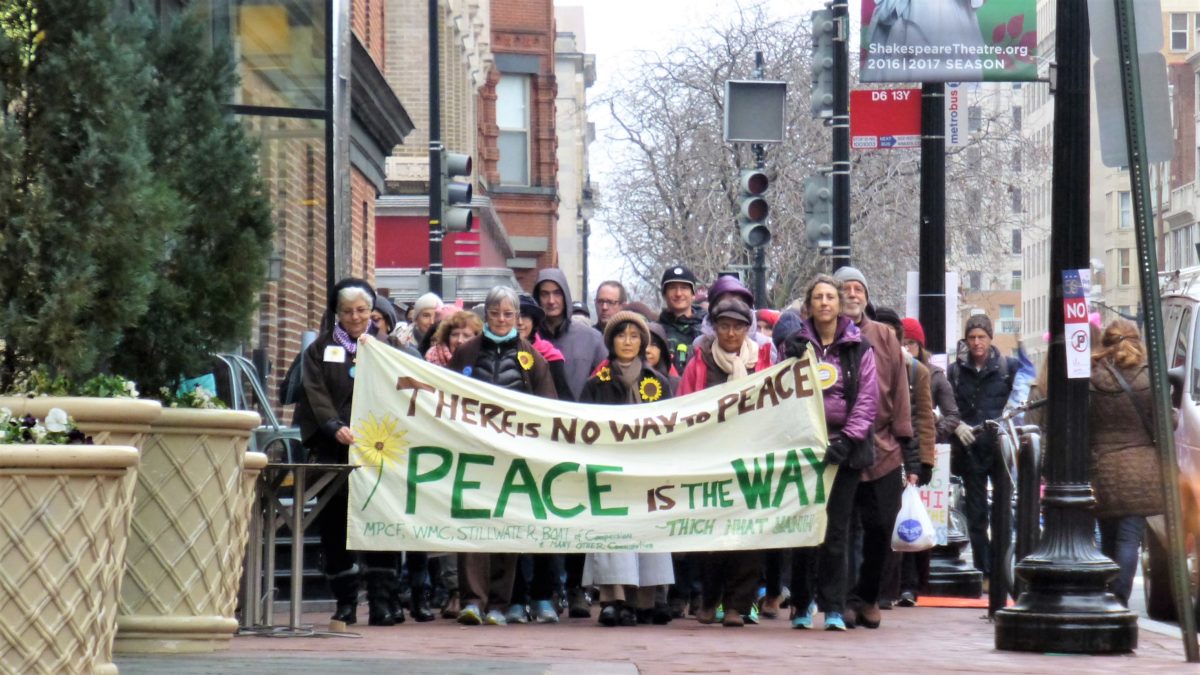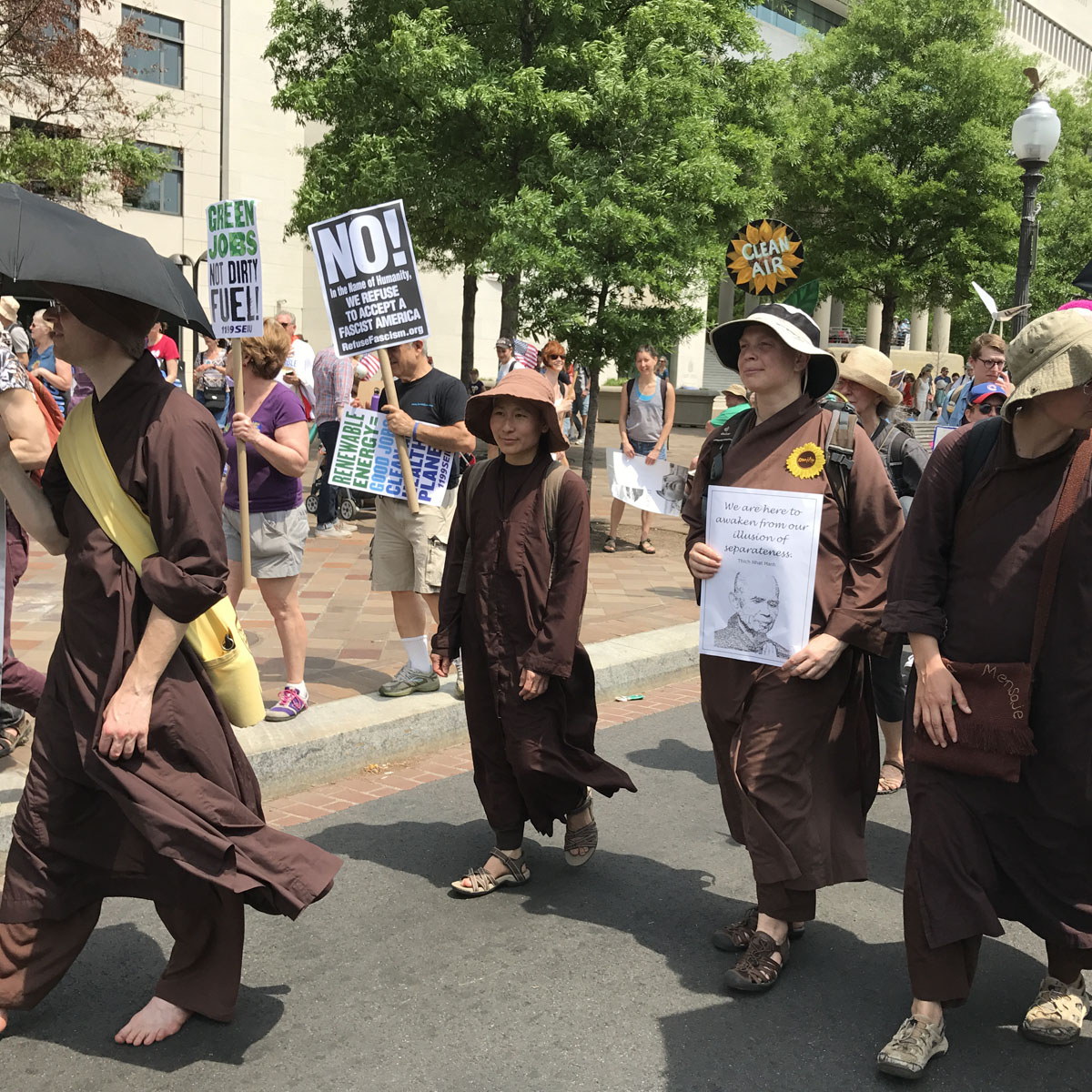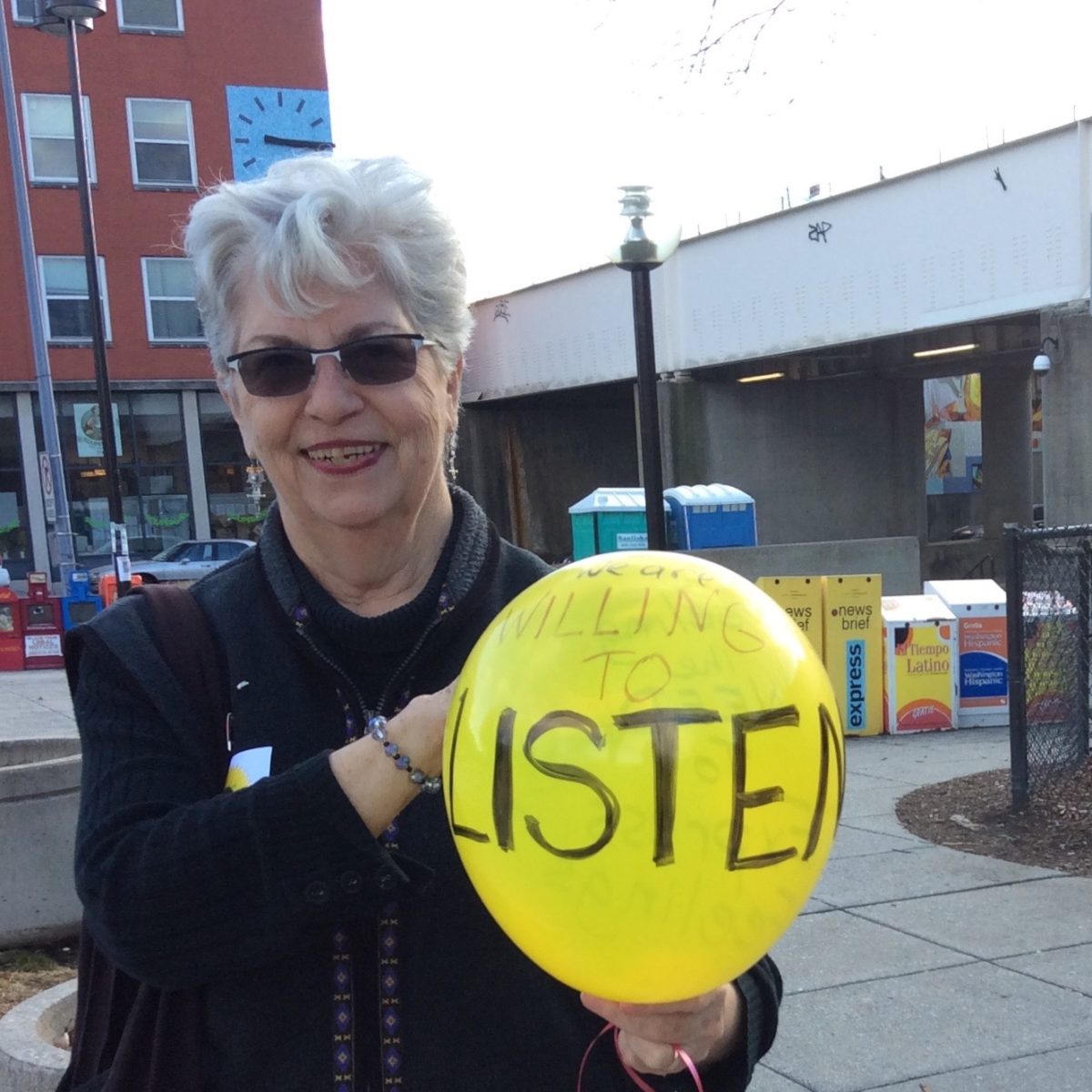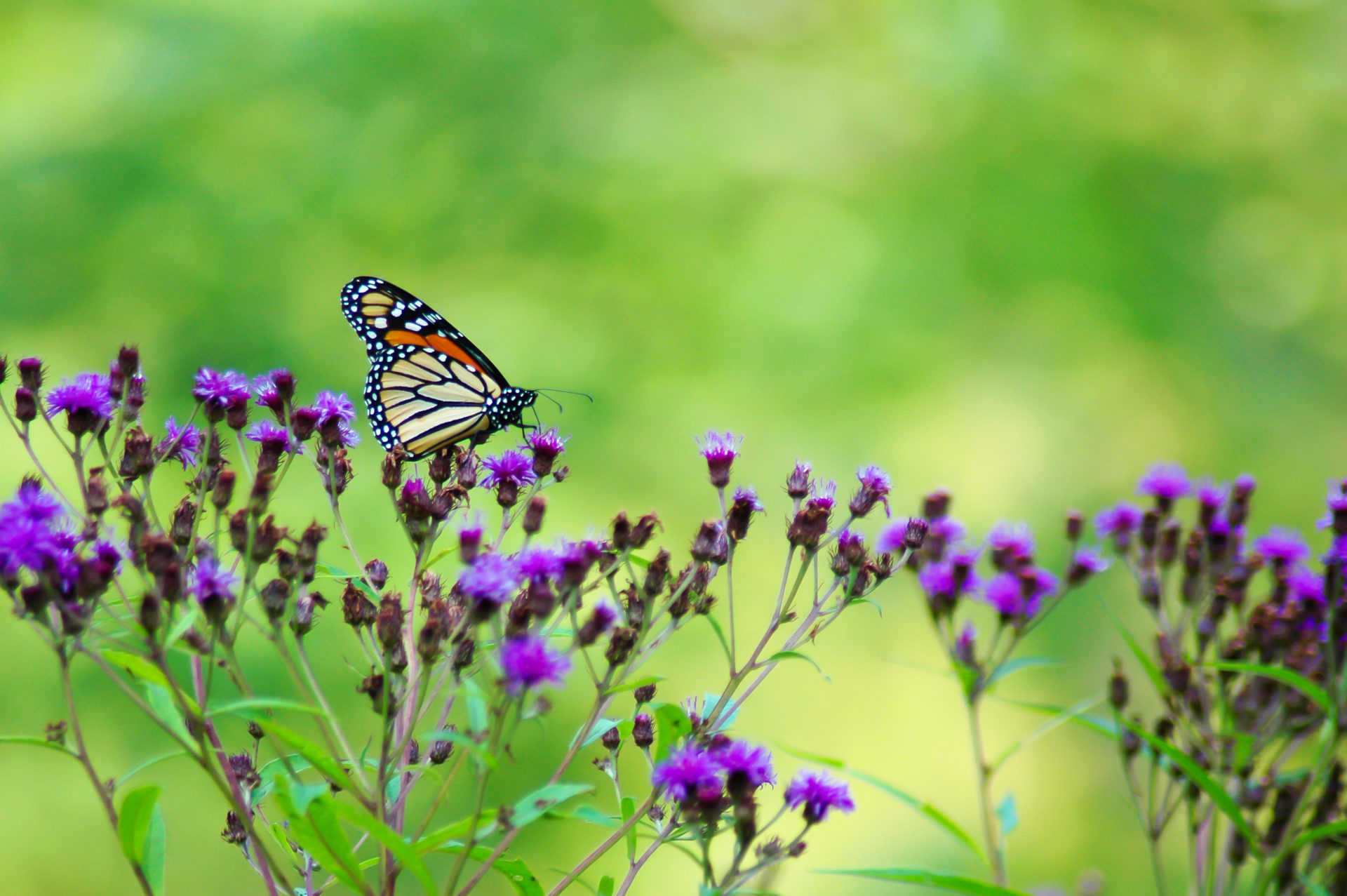By Joann Malone

Like millions of others, the results of the presidential election stunned, angered, and overwhelmed me. Our small town on the edge of Washington, D.C., immediately burst into protest and organized the Takoma Park Mobilization. The Women’s March was announced. We had focus, and the beginnings of organized protest against racism, sexism, and deportation sparked hope and energy.
By Joann Malone

Like millions of others, the results of the presidential election stunned, angered, and overwhelmed me. Our small town on the edge of Washington, D.C., immediately burst into protest and organized the Takoma Park Mobilization. The Women’s March was announced. We had focus, and the beginnings of organized protest against racism, sexism, and deportation sparked hope and energy. However, some of the language online—angry, divisive, superior—was inconsistent with the language of love, compassion, and understanding of my teacher. As always, my teachers reminded me that I am never alone, that I “inter-am” with all beings.
I turned to Thay, who had suffered severely during the US war on Vietnam for his insight. He and his other teachers reminded us, “Although we do not use the Sangha as a political tool and take sides in political conflict, we are instructed to always stand up to injustice. To speak out against human rights violations is our engaged practice. It is important that we stay informed so we can be a refuge for and defend those who are being discriminated against…always.”
Encouraged by these words, I talked to members of my local Sangha and Order of Interbeing friends in the area. Since D.C. was the destination for hundreds of thousands of protesters for the Women’s March, we organized housing, food, a gathering the night before as an organized group within the larger march. This grew into a network of Sanghas on the East Coast, spreading the word, organizing transportation, communicating needs. The result was a wonderful “Together We Are One” gathering on January 19, and a silent march within the huge Women’s March on January 20, 2017.
I had the idea of trying to form listening-posts at the Women’s March and other demonstrations where there would likely be “counter-protests.” We thought of carring balloons that said “Willing to listen” and practicing listening silently, in groups of four, to anyone who had different views from ours. The idea didn’t materialize for this demonstration, but possibly in the future. It was an important practice of interbeing for me to listen to the priorities voiced in the Sangha and put my energy to use for the good of the whole rather than pursue ideas on my own.

I knew I needed to remain close to the Sangha for the months and years ahead, close to my neighborhood committees, awake, aware, available to defend friends and neighbors who would be deported, arrested, possibly killed. The challenge for me emotionally was to remain vigilant and ready to resist oppression, while open my heart to those who cause the suffering. Daily I reminded myself I am interconnected, not only with suffering neighbors but also with politicians whose actions seem cruel and misguided—and those who voted for them. I reread Thay’s beautiful poem, “Please Call Me by My True Names,” and remembered I am as capable as any other human being of fear, anger, ignorance, and the actions resulted from instincts gone awry.
Our teachers challenged us to pray for the president-elect. My husband began a practice of doing walking meditation. I was determined to listen to people, including family members, who voted for him, to understand their feelings, thinking, and experiences. I called a niece, a great nephew, and cousin who had most likely voted differently than I had. I asked “Why? What are your concerns? Help me understand.” I listened, curbing my energy of defensiveness. These are people I love, people in my family with different views, but with the same blood, similar history.
The truth of interbeing has helped me practice listening and opening my heart. I call family more often, ask about their concerns for the country. I try to hold my tongue when I feel a judgment or discriminating statement arise. I watch my language in Sangha and on retreats. Am I assuming that because we all practice mindfulness, we all voted the same way?
I am in my family members and they in me. I am in my Sangha friends and they are in me. I am in my recovery community and they are in me. I am in the Buddha and the Buddha is in me. Even Donald is made of “non-Donald” elements, such as compassion, generosity, empathy, nonself. And he is in me, in us. Thay says political leaders do not just “arise.” We make them. They reflect us, our desires, our needs, our fears. Our influence on the president comes not only through our demonstrations, our shouts, our protest of his actions. We transform him in our hearts and minds each time we breathe mindfully, calm our emotions of anger, fear, frustration, despair; every time we refrain from hitting the “send” button on a righteous email or succumb to a negative response on Facebook. We lessen his greed and arrogance as we lessen our own. We lessen his impulsive decisions as we walk mindfully. When a condemnation arises in my mind, I say, “Hello, Donald. Are you breathing?”
There are moments when I can feel interbeing as a truth in my body, mind, and spirit. In the January Women’s March and April’s Climate Change March, while walking down Pennsylvania Avenue in silence with the Sangha, amidst hundreds of thousands of peacemakers and earth-lovers, I truly felt the power of the worldwide movement for social change again, the feelings that kept me moving in the ’60s and early ’70s. We are mighty. The power of mindfulness, love, and peace is more powerful than a few elected officials who will be gone in months or years. More powerful than hatred, greed, intolerance, and despair. Mindfulness practice is changing us, changing our communities, creating hope and healing energy powerful enough to affect the whole world. We inter-are with all the love in the world.
What informs our Sangha’s efforts at transforming these forms of suffering is an understanding of nonself, interbeing, and impermanence. What happens in our government affects the lives of people all over the world. Our actions for peace also have impact because we are interconnected with the rest of the world. Saving our country from fracking, pollution, and destruction of energy resources has effects on other countries and economies. We never act alone as individuals or countries. Everything is changing all the time, including our own consciousness about change. I must stay rooted in these realities to resist the ego, haste, and fear that still sometimes inform my thinking and actions.
In Dharma sharing, we recognize our interdependence with people of different political views, ethnicities, and cultural experiences. We practice the principles of deep listening and mindful speech in the Fourth Mindfulness Training. We learn we don’t know everything, being “right” is not as important in human relationships as being open, compassionate, understanding, willing to change. We cannot sustain this open-hearted love for our brothers and sisters, let alone for those with such different aims and views in our government, without the cradle of the Sangha, the teachings of the Dharma, the leadership and wisdom of the Buddha in us and in our teachers. We are all knots in the net of Indra, tiny yet interconnected with everything in the cosmos.
All of us, even our president, people doing harm to others—all of us—are one. I continue to offer my personal experience to my local communities, but also listen to the wisdom of teachers and my Sangha. I am deeply grateful for the Buddha, the Dharma, and the Sangha who guide me to be a small, useful wave in the ocean-wide movement for peace, equality, and justice in our country and in the world. Thank you, Thay. Thank you, my brothers and sisters.

Joann Malone, True Collective Practice, practices with the Washington Mindfulness Community. She taught high school for twenty-seven years and trained students to lead diversity workshops in Washington, D.C., and Maryland. An activist since 1963, she was inspired by hearing Thay in 1968 to face prison as a Catholic nun in a 1969 anti-war action against Dow Chemical.

